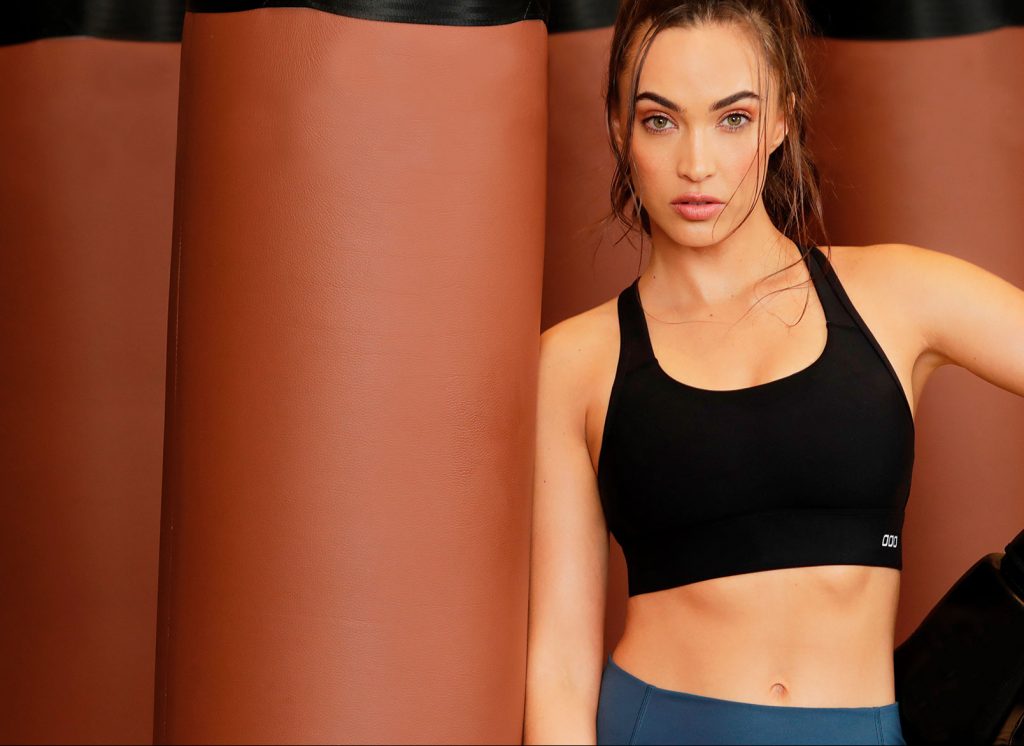Lorna Jane misrepresented the fact that it could not substantiate the claims that it made about its “anti-viral” line of its activewear, which the company marketed as a “cure for the spread of Covid-19.” That is what an Australian regulator asserts in a newly-filed lawsuit filed against the popular Brisane, Australia-based activewear brand. Called LJ Shield, the collection of “antiviral” apparel first generated backlash this summer and the company was slapped with a nearly $30,000 fine by Australian regulators for its marketing of a chemical treatment for its apparel, which it told consumers was capable of “reduc[ing] the growth of bacteria on fabric and surfaces by more than 99 percent.”
In response to an investigation by the Therapeutic Goods Administration this summer, a regulatory body for therapeutic goods in Australia, and a subsequent fine, a spokesman for Lorna Jane challenged the allegations, asserting that the company’s “testing shows that LJ Shield is an important part of stopping the spread of both bacterial and viral infections and should be used in combination with other precautionary measures, such as face masks and thorough and frequent hand washing.”
Nonetheless, Lorna Jane walked back on its LJ Shield advertising campaign, which saw the company promoting the “virus-blocking” and “antibacterial” properties of the clothing by way of a sweeping Instagram marketing campaign, as well as in makreting materials on its e-commerce site and in its network of brick-and-mortar stores. “Most of the claims were removed in mid-July following a public outcry, but until at least November, Lorna Jane continued to represent on tags that the garment permanently protected wearers against pathogens,” the Financial Times reported on Monday, prompting Australian Competition and Consumer Commission (“ACCC”) to file suit.
The basis of the ACCC’s case? That Lorna Jane – both the company and its eponymous founder/creative director Lorna Jane Clarkson – “misrepresented the fact that there was a scientific or technological basis to the claims, when no such testing had been carried out.” In other words, the company made objective warranties about the nature of the LJ Shield products, such as that the chemicals used to treat the apparel “break through the membrane shell of any toxic diseases, bacteria or germs that come into contact with [them], not only killing that microbe but preventing it from multiplying into any more,” without having substantiation to back up such claims, thereby, allegedly running afoul of national advertising laws. Clarkson has named in the complaint, as “she was knowingly concerned in the alleged conduct, including by personally making false or misleading claims in a media release and video.”
ACCC commissioner Sarah Court asserted in connection with the newly-initiated case that “it is particularly concerning that allegedly misleading claims that Lorna Jane’s LJ Shield Activewear could eliminate the spread of Covid-19 were made at a time when there was fear about a second wave emerging in Australia.”
The FT notes that “the potential penalties, in the event of a conviction, are much tougher” than the ones that Lora Jane faced as a result of the Therapeutic Goods Administration’s probe, and could reach A$10 million ($7.5 million) or an even steeper 10 percent of annual revenue. As of 2018, Lorna Jane’s annual revenue topped $200 million.
Addressing the Lorna Jane marketing scandal this summer, University of Technology Sydney’s School of Life Sciences Senior Lecturer Dr. Catherine Burke cautioned other brands, stating that while “many antimicrobial products exist on the market, the important question at play – when it comes to LJ Shield products and other similarly-marketed wares – is not so much whether they can kill microorganisms, but whether using those products actually reduces your risk of getting sick.” In “many cases,” she said, “The answer is no, [and] brands would be wise to keep this in mind when crafting their marketing campaigns, as the Lorna Jane matter clearly demonstrates that regulators are on alert.”
As for the company, itself, a representative stated on the heels of the ACCC’s filing that because “the proceedings are now before the court, neither the company nor Ms. Clarkson will be making any further comment at this stage.”











